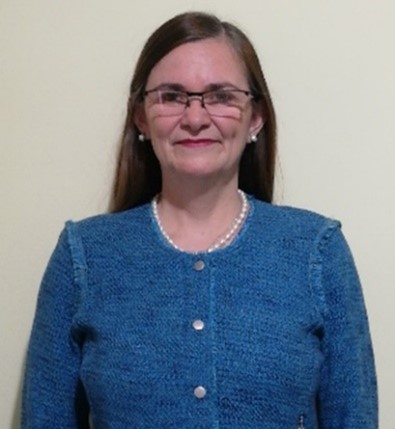Sharing 8- The Lay Marist Vocation
Sharing. The Lay Marist Vocation (Lay Marist Newsletter)
PDF: English | Español | Français | Português
Lay marists, leaders in the service of people
Ana Isabel Saborío Jenkins – Extended Secretariat for the Laity – Central America Province
Some years ago, I was privileged to participate in a specialization course on Marist Educational Principles and Patrimony and I was concluding the experience with an article to write. The research focused on the heritage of managerial leadership from the experience of Father Champagnat, and I will take some excerpts from the article because through the research I realised the importance of Brother François in the handing on of the charism. Vital because he was the one who embedded in his DNA the spirituality of Fr Champagnat, lived with him, learned from him and with him. He accepted and transmitted the charism faithfully.
Brother François was at Father Champagnat’s side from the time of the foundation of the Institute of the Marist Brothers until the time of his death. He was chosen as the first Superior of the Marist Brothers, and it fell to him to pass on the charism to the other Brothers. With fidelity, love and even ignorance, he ensured the continuity and vitality of the charism. On the basis of the above considerations, it can be seen that the lived experience of Brother François with Father Champagnat, marked a line and style with a Marist colour and fragrance, which emanated from the family spirit that reigned in the community of La Vallá and later, at the Hermitage. This close relationship can be seen in the words of the Founder in several of his active letters and, as an example, in letter 194 when the Founder affirms:
Brother François is my right arm; in my absence he runs the house as if I were there. Everyone submits to him without any problem. Mary clearly shows her protection over the Hermitage. Oh, how powerful is the name of Mary, blessed are we who have clothed ourselves with it! Our Society would not have been spoken of long ago if it were not for this holy name, this miraculous name. Mary is the unique resource of our Society. (LETTERS, PS, 19)
This facility with words could only reinforce the influence he exercised over those who dealt with him. The reports of the Brothers hint that this influence was great. “He was firm, certainly, Brother François confided, we would all have trembled at the sound of his voice, at a single one of his glances…, yet he was above all good, compassionate, he was a father… One word, the same word repeated several times, spoken by him, penetrated to the depths of the heart” (MARIST NOTEBOOKS, no. 16, p. 7).
In the article written by Brother Paul Sester, entitled “Brother François evokes Father Champagnat”, he explains through examples, how Brother François gives continuity to the charism of Marcellin Champagnat and gives several examples of which he emphasises some that show characteristics of the leadership of Father Champagnat and how this leadership and the determination of Brother François to keep it alive has been the basis for maintaining, strengthening and revitalising a charism that we Marists have the responsibility to continue through time. Brother Paul Sester identifies as an important moment the year 1860 when Brother François convoked the III General Chapter where he asked to retire to the Hermitage even though he was still Superior General. Once at the Hermitage, he began the custom of gathering all the Brothers together on Sundays to give them instruction, clearly influenced by Marcellin Champagnat and taking on with conviction the responsibility of making known a charism in which he had lived immersed at the side of Father Champagnat but with the awareness that many other Brothers did not have the gift of living and learning at his side.
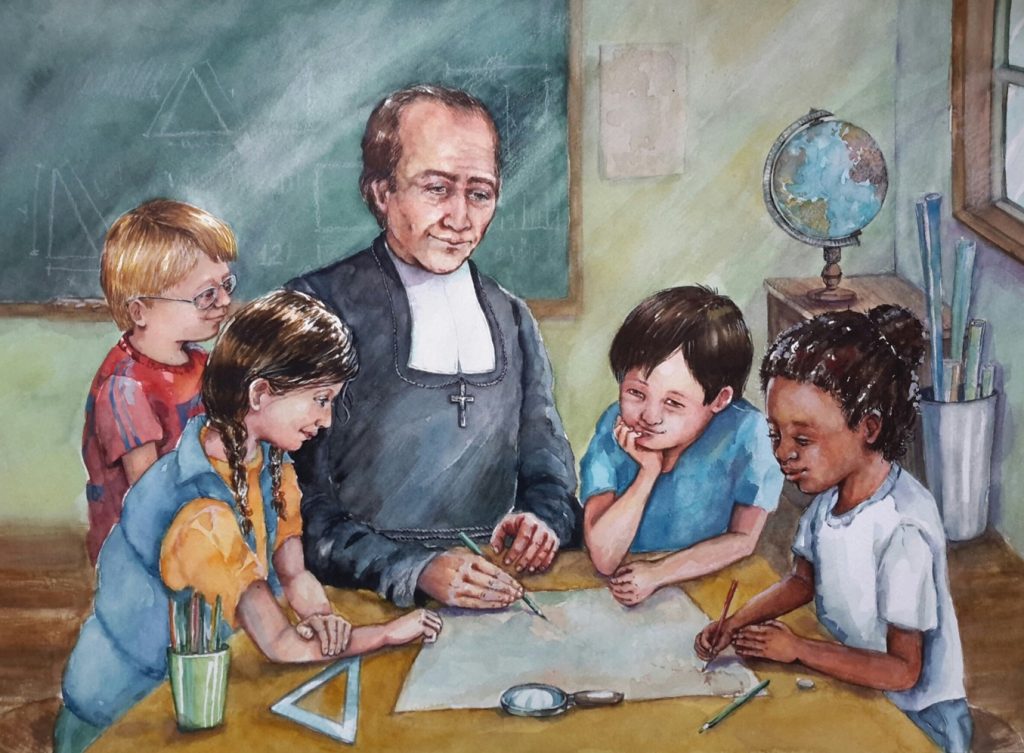
Brother Paul Sester (MARIST NOTEBOOK, nº 19, p. 80) transcribes one of Brother François’ notes which he would use to give Sunday instruction to the Brothers:
Everything here speaks to us of Father Champagnat, everything reminds us of this good Father. The walls, the partitions, the floorboards tell us that he was at once a bricklayer, a plasterer, a carpenter, he worked on everything and directed everything. He walked on these platforms, he walked through these rooms, he prayed, sang, heard confessions, celebrated mass and gave communion in this chapel that he himself built; he worked the land, cultivated the vegetable garden; he walked around; he ate in the dining room, in the Hall; he gave his talks to the novices in the Novitiate Hall; he knocked down the Rock with a pick and shovel. Finally, he rests in the Cemetery he made himself. You will eat fruit from the trees he planted; you will reside in the place he chose and where he lived.
Brother François’ notes for Sunday instruction not only reveal the Brother’s desire to pass on a charism, a desire for all to feel the presence of Father Champagnat, but also make it clear that the Founder was a leader who taught by his presence, his example, his words and his actions that he did not limit himself to work but to prayer. Father Champagnat’s life at the Hermitage was a life in which his constant work and instruction was at the same time a life of prayer.
Later in the same document, in the notes of 09.06.1872 by Brother François, we read: “Father Champagnat said: A Brother Director who ensures that silence is respected, who is careful to encourage study, who requires each one to carry out his work with care and self-denial, succeeds daily in avoiding a multitude of faults; he preserves the Brothers from an infinity of dangers and temptations, and renders them an excellent service” (MARIST NOTEBOOKS, nº 19, p. 85). This note of Brother François illustrates the preventive and visionary role that Father Champagnat perceived that the Directors should have. It is fundamental to highlight the last part of the notes, the phrase that the Superior wrote in 1872: “…and gives them excellent service”, it is fundamental because it shows in this phrase and in the actions of Father Champagnat, the practice of a leadership of service which implies feeling part of Humanity, helping others first to grow as persons and then to grow within a community where the sense of Humanity and awareness of otherness is developed.
The author of the article himself transcribes the notes of Brother François on 21.01.1872: “You see that he could not begrudge either the Rule or duty, and that he did not hesitate to punish or even to expel when necessary; and yet he needed Brothers, but he wished them to be good” (MARIST NOTEBOOKS, nº 19, p. 90).
Father Champagnat always made clear the role of the Director, firm, resolute, human. He never allowed a reading of a context in which his action was determined by a need for survival, but rather, an action marked by a deep conviction in a project inspired by God and given to the protection of the Good Mother and in the early role of the Directors.
It seems relevant in this article to refer to the correspondence between Marcellin Champagnat and Brother François. An in-depth analysis of them shows that in the area from 1836 to 1838, the Founder took advantage of the resource to accompany, instruct and motivate Brother François in a series of aspects proper to the function of Director which he would later, on Marcellin’s death, inherit and pass on to other Brothers. Among these are the administrative functions required for decision-making, authorisation of the work, perseverance, supervision, collegiality, economic management, economy, work, strategic vision, leadership, communication, listening, closeness, trust and affection for his Brothers.
I can only think of the fundamental role that Brother François played in those years in the transmission of the charism to the Brothers.
This mission, as leaders at the service of our communities, must be taken up today by us, brothers and laypeople, all Marists who wish to live the charism “making Jesus Christ known and loved” with creativity, innovation, to ensure that for many years to come, the charism will continue to be lived and will continue to be a beacon of hope for many in the world.
Homes of light that generate new life
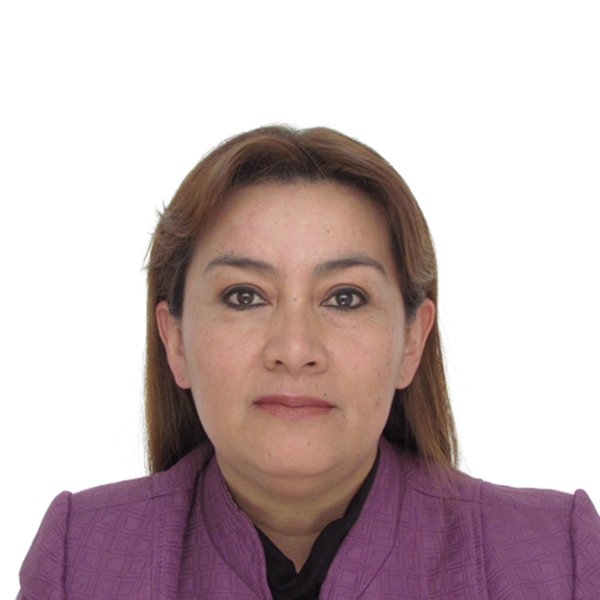
Claudia A. Rojas Carvajal – Arco Norte: Lay Formation – Norandina Province
“For as the body is one and has many members, but all the members of the body, being many, are one body, so also is Christ. (1 Corinthians 12:12)
In mid-2019, we received from the Marist Institute the strategic plan of the General Administration, one of the ways to respond to the calls of the General Chapter. The plan invites the Administrative Units to look to the future with creativity and joy, and also to walk with others in these “caravans of life” where we are invited to get to know one another, to recognise one another and to give new and audacious responses to the situations in which we are living.
In our region, the strategic plan confirmed what the Provinces of Arco Norte had already identified since 2018, and that was that we were and are a group of Provinces that collaborate and organise ourselves to revitalise Marist life and mission, offering and innovating shared services, in harmony with the Institute through principles, processes and structures that allow us to respond to the challenges of our environments.
In this revitalisation, the regional formation team for lay people was created, with the task of “Consolidating Marist identity and recreating the vocational option through integral formation processes – itineraries – that promote the building of the Kingdom of God. In the light of the three vital dimensions of Marist life: a passionate search for God; to be people of communion, of fraternity; to be evangelisers and evangelised in the geographical and existential surroundings of children and young people”.
Since its inception, the team has included the participation of a lay delegate from each Province and a Brother who accompanies the process, as well as the richness of being able to count on the enlarged secretariat of the laity. The first step we wished to take was to get to know the lay processes of each of the administrative units; taking up the quotation from Corinthians with which we began this text, we are aware that we form a single body, but with different talents, gifts and experiences.
As a result of the Covid emergency that was experienced in the world and in our region, rather than motivating us to abandon our dream, it prompted us to recreate it in a different way and we decided to move forward from the virtual world. The proposal was then developed based on SEEING (knowing the processes of each one), JUDGING (looking at the challenges, the riches and the difficulties for the lay life and vocation of our region) and finally ACTING (which is to define the strategic planning articulated with that of the region and of the general administration).
Although covid-19 has brought a lot of uncertainty and pain, facing this situation virtually was also a moment of grace for us, allowing us to bring together a larger group of lay Marists. In the course of eight months, the lay Marist vocation has been taking on more concrete faces and experiences. For 8 months we got to know each of the provinces, the lay life which, in different ways, but all of them very rich, has been making its way, the successes, the difficulties and the challenges. In short, the lay Marist vocation was taking on more concrete faces and experiences.
The time of exchange not only made it possible to get to know the processes, but also allowed many of us to get to know and recognise in a vocational setting our companions on the way. There was good dialogue, joy, respect, trust, cohesion and transparency that allowed us to tackle the various challenges that the Marist vocation, and especially the lay vocation, poses today.
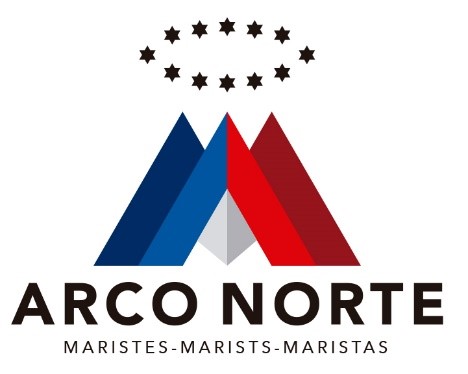
Today, almost a year and a half later, I can affirm with joy and hope that not only do we have all the tools to continue to build lay Marist life in the region of Arco Norte around four thematic axes: communion, formation, vocation and organisation, but also that we have created a family of 28 lay men and women who dream, think and wish for each other as a family of the region of Arco Norte.
May this journey together as Marists of Champagnat continue to encourage us to be beacons of hope, builders of bridges and witnesses to the infinite love that God and our Good Mother have for us.
Social friendship – A challenge for lay Marists
Joao Luis Fedel Goncalves – Province of Brasil Centro-Sul

In the project of international communities known as Lavalla200>, the Marist Institute proposed the creation of communities in the peripheries of the world: Holguin in Cuba, Syracuse in Italy, Atlantis in South Africa, Mount Druitt in Australia, Moinesti in Romania and Tabatinga in Brazil. The Brothers, lay men and women, accepted the challenge to live together a new form of fraternity in the service of life. And they do not do this through great works or spectacular initiatives. In all these places, they seek the partnership and collaboration of organisations and the local Church to develop their mission.
Pope Francis, in the encyclical Fratelli Tutti, invites everyone to live fraternity and social friendship. The first is about personal relationships, the way we relate to other people. The second urges organisations and countries to seek justice and peace, especially for those who are on the margins of the road, like the wounded man picked up by the Samaritan in the parable told by Jesus (Lk 10:25-37).
A good example is the relationship between the local and the global. If we focus exclusively on the local, we could fall into “everyday pettiness”, and if, on the contrary, all attention is focused on the global, we would run the risk of ignoring the peculiarities and differences of the singular, the small. Therefore, the Pope says, “universal fraternity and social friendship within each society are two inseparable and coessential poles. To separate them leads to a deformation and a harmful polarisation” (Fratelli tutti n. 142).
Fraternity and social friendship in Marist life
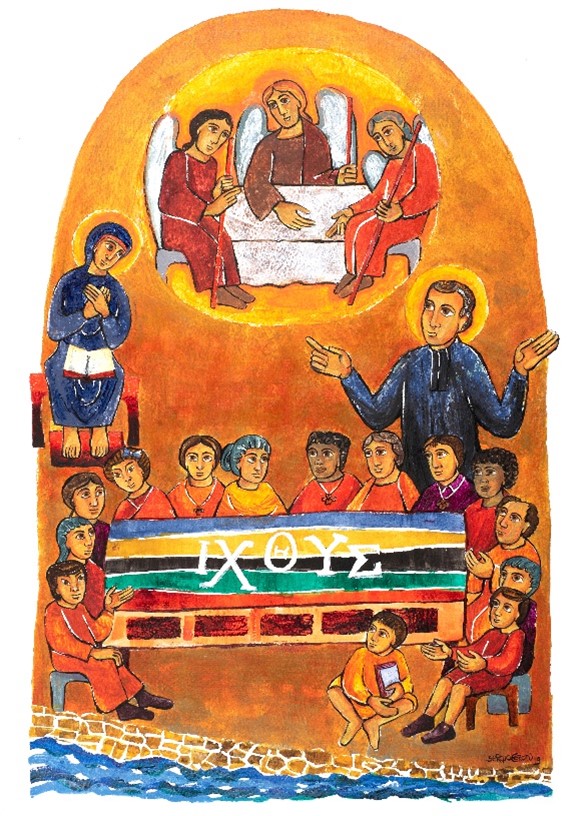
The documents dealing with Marist identity show that fraternity is one of its distinctive characteristics. The Rule of Life asks each Brother to witness to fraternity: “By sharing in this anointing of Jesus, your consecrated life is called to be a prophecy of fraternity for all: to reveal by your life that we are all children of the same Father and, therefore, brothers and sisters” (n. 5). Around the same table, he uses the expression “family spirit” to call for fraternity: “Family spirit is a way of being that restores us as persons and transforms us. It makes us trust each other, accept our own limitations and manifest the best that God has given us” (n. 69).
Likewise, social friendship is an important dimension of Marist vocation and mission. From the beginning, the Society of Mary project involved different forces working together. Even Champagnat, who single-handedly led the creation of the Marist Institute, partnered with other priests, with the Archdiocese and the organisations that helped him to make his congregation possible. The first missionaries in Oceania, for example, followed a collaborative project, despite the contradictions that accompanied the initial experiences.
Champagnat’s famous expression, “All dioceses are in our plans”, rather than an expansionist programme, proposes an action that seeks to integrate into society and the Church in a collaborative way. In most situations, the Marist presence was due to the request for its services of education and evangelisation, especially for children and young people.
The 22nd General Chapter presents the global charismatic family with the challenge to “be bridge builders”. In particular, two attitudes emerge from it. The first one is the abandonment of the culture of egos and the promotion of a culture of echoes, such as ecology, solidarity economy, etc. The Greek term evokes the web of relationships that constitutes our situation, in which everything is interconnected, making life possible. To be a bridge, therefore, is to value everything that fosters exchange and communion, and that seeks to reduce “the scandal of differences and inequalities”.
The second attitude is “to be agents of change” who act primarily in the lives of children and young people “through an evangelising education”. In the same way, this presence cannot be developed in isolation, but needs to generate areas of participation and interaction.
There are significant examples in the Marist Institute. The Marist Global Network of Schools has recently been launched, bringing together six hundred educational communities around the world. It is possible to imagine how much cooperation this movement will generate, significantly expanding interactions, cooperation and networking. As Pope Francis says, “the whole is more than the part” (Evangelii Gaudium, n. 235).
If fraternity characterises us as Champagnat Marists, its “global” expression is social friendship. This is, in the words of Pope Francis, “the love that extends beyond borders (…) in every city or every country. When it is genuine, this social friendship within a society is a condition of possibility for a true universal openness” (Fratelli tutti n. 99).
Social friendship, Marist organisations and the participation of the laity
There are several local and regional organisations that promote social development and education. We give three examples.
The first is the NGO SED (Solidarity, Education and Development), an entity of the Marists of Spain, which operates in various parts of the world, “in line of cooperation, working for the promotion and defence of the right to education, health, dignified work, access to water and empowerment of women” (https://sed-ongd.org/).
Another example is a collaborative project of the Solidarity Network of Marist Brazil called Entrelaça, which is creating partnerships with the public authorities, local organisations and the Marist community to work in defence of the quality of public education in different regions of the country. Brothers, partners and lay people have been involved since the beginning of the project.
Finally, we also have the Global Education Pact, launched by Pope Francis, in favour of humanistic and solidarity-based education. This project has mobilised the Marist Institute, Provinces throughout the world and numerous organisations. It is a favourable area for the work of the Marists of Champagnat.
These projects are responses to the Pope’s call to act in particularly sensitive areas of social friendship. This indicates some very concrete faces: the poor, the marginalised, orphans, refugees and exiles, victims of war, victims of persecution and injustice, victims of destruction, people living in fear, tortured, abandoned or ignored by society, people with disabilities, existential strangers, the elderly, children and young people.
Francis reminds us that “If society is governed primarily by the criteria of market freedom and efficiency, there is no place for them, and fraternity will be just another romantic expression”. (Fratelli tutti n. 109). On the contrary, “A human and fraternal society is capable of taking care to guarantee in an efficient and stable way that all are accompanied in the journey of their lives” (n. 110).
Lay Marist commitment
Reflecting on our vocation as lay Marists requires us to consider these faces and to think about ways of participating in the local and global organisations that work on behalf of these populations, these groups. How does our baptismal commitment, lived out in Champagnat’s charism, impel us to carry out our mission in these contexts?
Any process of change presupposes a connection with all the forces working in the same direction. This way of acting in a network, of collaboration in view of the good, of commitment to those most in need, we have learnt from our Founder.
This is also our Marian way, which fills us with hope, a shared hope. As the Brazilian poet João Cabral de Melo Neto says, “Announcing the morning. A rooster alone does not announce the morning: he will always need other roosters”.
What does it mean to me to be a lay Marist?
Nelson Enrique Cárcamo Banegas – Honduras

Being a lay Marist is part of my life. I have been in contact with the Marist charism for several years, I began as a Marist student, then as a Marist educator and now I am following more formal processes of lay growth.
Contact with the brothers has been very significant for my life, I have found a new family, I admire their example of total dedication, I value their support for others, accompaniment and shared life.
Saint Marcellin Champagnat is my inspiration, I admire his determination in the face of the challenges of his life-vocation and his deep faith; he never gave up, he always maintained the conviction of his Christian faith, supported by Mary.
As a lay Marist, I feel that we are at an important historical moment, the Marist Brothers have built a history of apostolate; now, those of us who have received and are witnesses of their dedication, feel connected to the charism and committed to continue working for the kingdom of God, according to our potential, with a renewed spirit, in accordance with current times. Lay Marist life is a richness, since we have a great heritage from the brothers, which can bear much fruit throughout the world.
I have always had vocational concerns and now that I have the opportunity to serve as a lay Marist, I love it.
I trust in God, in his purposes, He guides my path as a lay Marist.
Alfredo de Jesús Rodríguez Márquez – Mexico

I am 33 years old and live in the city of Tijuana, Baja California in Mexico. For 15 years I have been working in the Mexico Institute of B.C., accompanying the human and spiritual formation of adolescents at secondary level.
My first contact with the Marist charism was as a student. From the beginning I felt welcome, as when you arrive at the house of an old friend where you are received with much love and joy. It was in this way, without realising it, that I began a long journey full of significant experiences, surrounded by people who have undoubtedly allowed me to see the loving face of God.
As a Marist I never walk alone, in Mary and Marcellin I have found the model for accompanying my students and for my own life, they encourage me and give me courage to face the challenges of the mission of making the Gospel of Jesus come alive. I am moved to know that there is still a long way to go and that I am accompanied by many courageous and committed people who have responded to God’s call to be happy.
Today I know with certainty that my vocation as a lay Marist is not limited by the walls of the school and that I did not stop being a Marist when my working hours ended. Today I see in each child, young person, lay person and brother a home of light that enlightens and guides my journey. Today and always, I will be a Marist of Champagnat.
Ana Isabel López Morataya – Guatemala
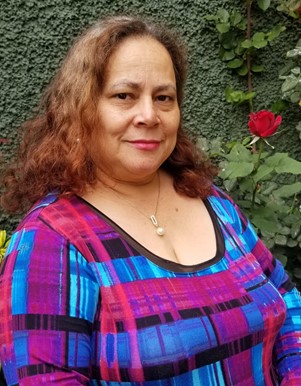
I have been married to David Castellanos for 32 years, we have four children, Isa, Ale, Regina and Santi. With gratitude I can say that we are a Marist family, because we have all participated in different processes and experiences that define us as such.
Since the 80s I began in the Marist world, participating in the youth groups of Remar. I have been part of the Violet Fraternity of the MCFM for 25 years, which functions in the Marist School in Guatemala. I am currently in lay vocational accompaniment.
Throughout my life I have been discovering and refining my being as a Marist, experiencing in my life the loving and kind presence of God, which is leading me to a deep commitment to Jesus and his Gospel. In this process Mary, my good Mother, has been a faithful companion along the way.
I can affirm that the essence of my lay vocation flows from the great love of the God of Jesus who dwells in me and commits me to be Marist in all the dimensions of my life.
To make Jesus Christ known and loved, from the simple and humble, in everyday life, is a point of reference to be a seed that bears fruit and generates life, being co-responsible in the building of the Kingdom of God.
That is why I live my vocation as a lay Marist among the children and young people who are the reason for my mission, accompanying their processes and being a source of life and hope in them, their families and the environment in which they live, are commitments that I assume with a dynamic spirit, trying to be faithful in the following of Jesus and in harmony with the charism inherited by Father Champagnat.
I thank God for this gift, the brothers and the people I have met along the way and with whom I join areas of formation, spirituality, fraternity and Marist mission. I especially thank my family and fraternity for being part of the Champagnat dream.
.

